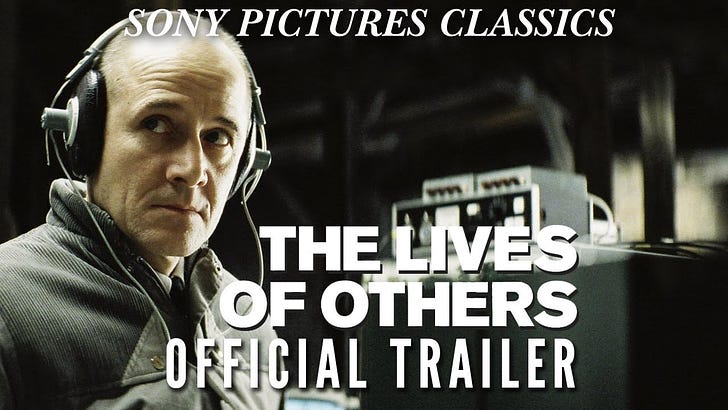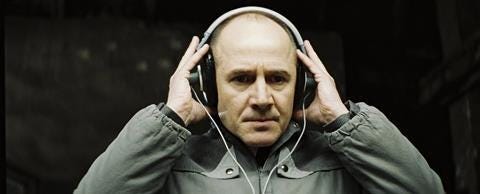Heroes of the Zeroes: The Lives of Others
Heroes of the Zeroes is a daily, alphabetical look back at the 365 best films of 2000-2009.
"The Lives of Others" Rated R 2006
Successful spying and acting seem to come from the same chameleonic headspace —anticipating and interpreting responses all while detachedly slipping in and out of different skins.
An historical film about both professions, 2006’s “The Lives of Others” generated tumultuous suspense and destructive drama within the intimate, internalized moments where motivations were contemplated.
Wiesler (Ulrich Mühe) is a loyal member of East Germany’s population-monitoring Stasi police squad in the 1980s. Outwardly pro-socialist playwright Georg Dreyman (Sebastian Koch) is above suspicion, but not the greed of a government official who craves Dreyman’s actress lover, Christa (Martina Gedeck), and orders Wiesler to bug the couple’s apartment.
Vicariously thrilled by their romance, rage and blossoming anti-government rebellion, Wiesler eventually intervenes in both Christa and Dreyman’s lives.
Mühe’s muted, ghostly turn conceals whether these actions are entrapment, envy, admiration or an incalculable blend of all three. At once, Wiesler is Big Brother and a big brother, and Mühe’s mensch minutiae add up to supremely satisfying, cautiously uncovered character revelations.
To the detriment of drama, lesser filmmakers would focus on the felicity of freewill amid oppression. Writer-director Florian Henckel von Donnersmarck lets Dreyman and Christa feel the fear of pursuing freedom, too.
Activism proves a tough pull on people who’ve long thrived at their political patrons’ blessings, and one cruelly chooses the path of least resistance when the chips are down.
Racing toward its cataclysmic conclusion, “The Lives of Others” provided a troubling depiction of a political clamp on expression and emotion.



